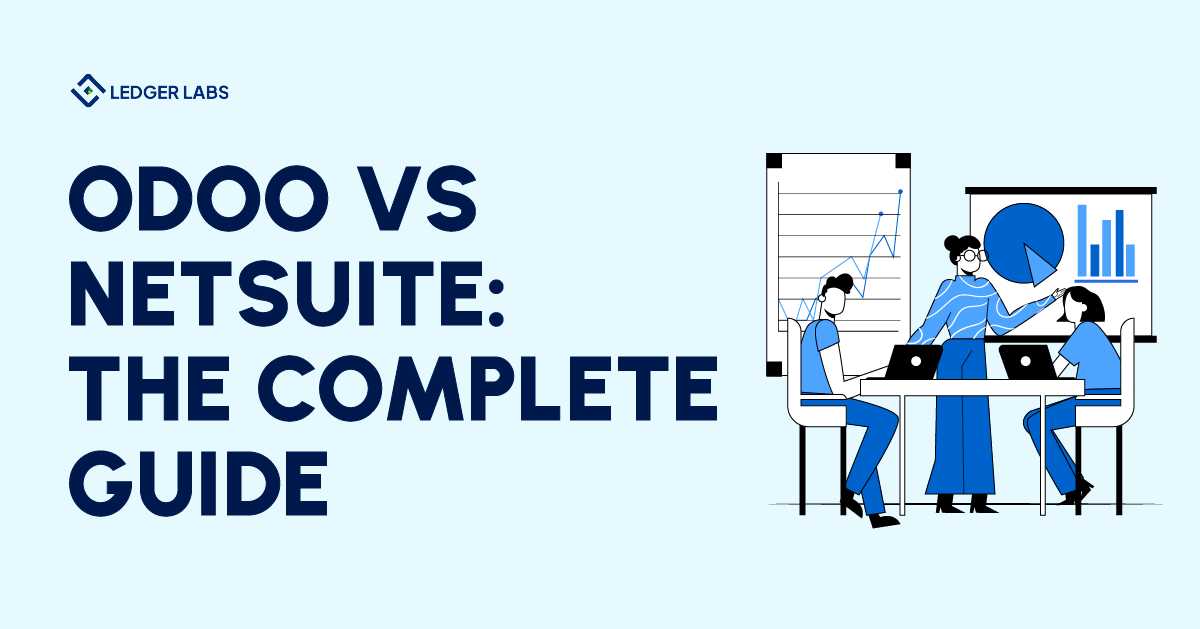1. NetSuite offers advanced features for CRM, ERP, and data migration, outpacing Odoo in flexibility, customization, and scalability for growing businesses.
2. Odoo excels in affordability and simplicity, appealing to startups and small businesses with its open-source model and modular approach.
3. NetSuite is more robust for financial reporting and enterprise-level integrations, providing better support for global compliance and complex operations.
4. Odoo’s open-source community enables quicker customizations, but NetSuite’s proprietary tools deliver superior reliability for large-scale deployment.
Business management suites or software are one of the most preferred choices of any small-scale or medium-scale business.
With the help of such solutions and tools, you can easily manage different aspects related to your business and its operations.
You may need a business management tool for Enterprise Resource Planning (ERP), Customer Relationship Management (CRM), Human Resource Management (HRM), warehousing, inventory management, billing, e-Commerce management, purchase management, and others.
To tackle all these tasks for your business, multiple solutions are available online, two of which are Odoo and NetSuite.
What is Odoo?
Odoo is an amazing and quite widely used open-source business management suite.
The ERP tool offers a lot of functionalities to the users and allows them to control all the aspects related to CRM, ERP, HRM, and much more for different businesses. The interface of the solution is quite interactive and easy to use for beginners and professionals.
Odoo can cater to the requirements of both small and medium businesses quite well and has been a viable competition for other similar tools as well.
What is NetSuite?
Just like Odoo, NetSuite ERP is also a well-established and widely-sought ERP solution.
With the help of this suite of software and tools, you can take care of the requirements related to the business like CRM, HRM, inventory, warehouse, billing, invoicing, payroll management, accounting, and others.
The standalone tool is quite effective in device management as well. With the help of this cloud-based ERP solution, tons of businesses have been able to manage and control their business attributes while being on the move.
As both Odoo and NetSuite tackle similar challenges and offer similar features in a common domain, the major question that appears repeatedly is what is the difference between the two tools. This is something that we will discuss and straighten out with the help of this simple guide.
Odoo vs NetSuite: The Similarities
To understand how the two ERP tools are different from one another, first, you should understand the similarities between the two. The below table represents the similarities between the two tools on various fonts and requirements.
Odoo Vs NetSuite: The Differences
Take the help of the below table to know on which grounds the two tools differ. All the differences provided and explained below will help you ascertain which one of the two tools is the perfect match to take care of the different requirements of your business.
Summing Up: The Differences Between NetSuite and Odoo
So, we hope that with the help of the information provided in the above sections of this article, you got the required information related to the differences as well as the similarities between Odoo and NetSuite as the two of the most commonly used and sought ERP tools of all time.
From the above table, it can be concluded that although Odoo offers more features than NetSuite in comparison, the latter is more advanced and thorough in its services.
With the help of effective NetSuite training and assistance, you can get the most out of the online solution with ease, provided that the training is quite extensive and thorough as well as inclusive.
Speak to our ERP experts today to integrate either of these tools into your business.












